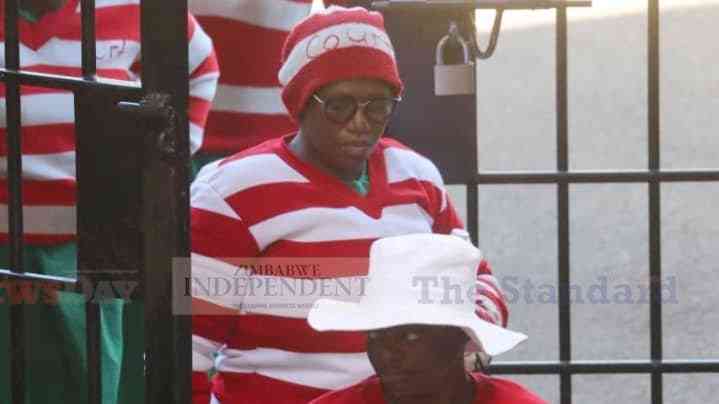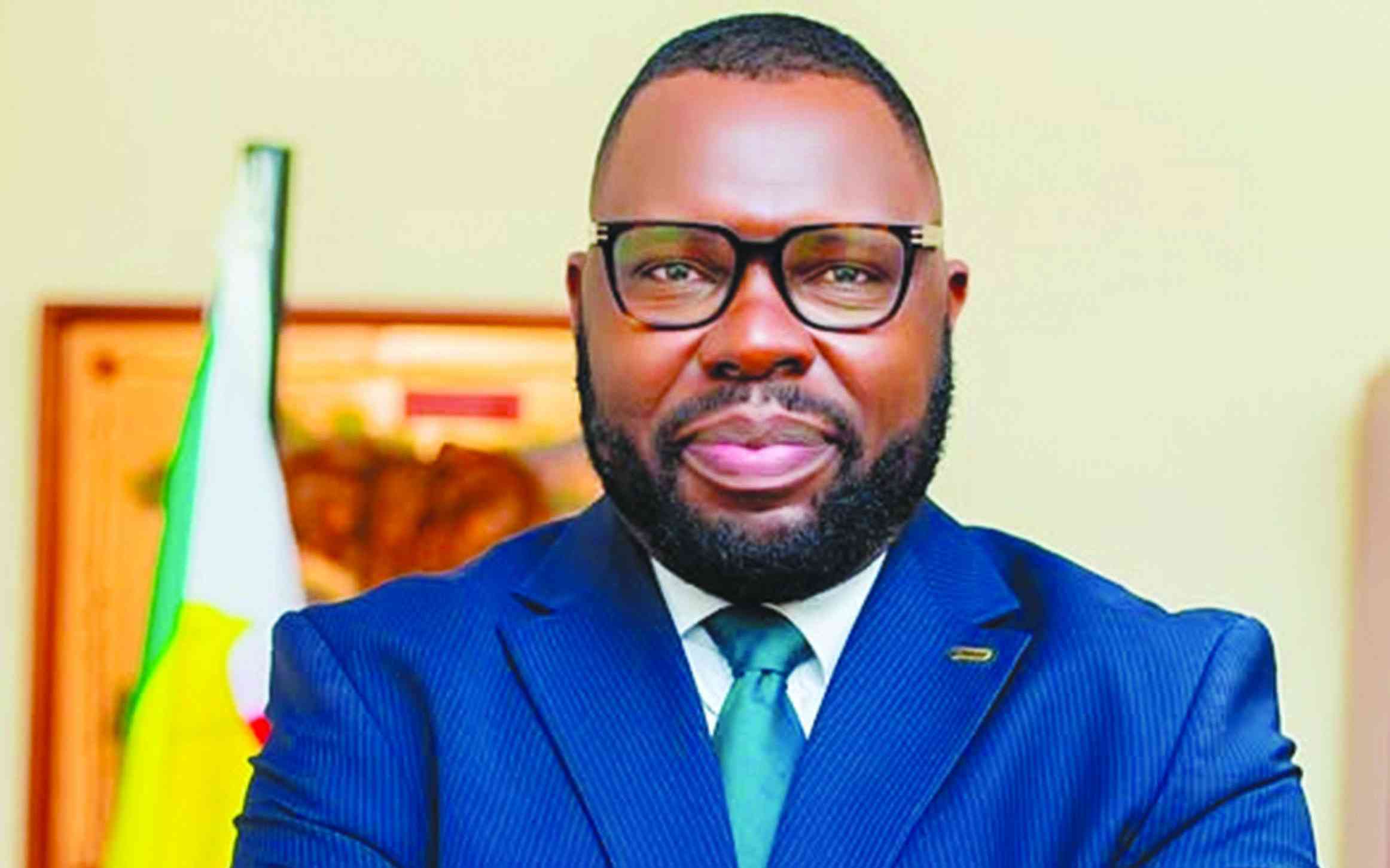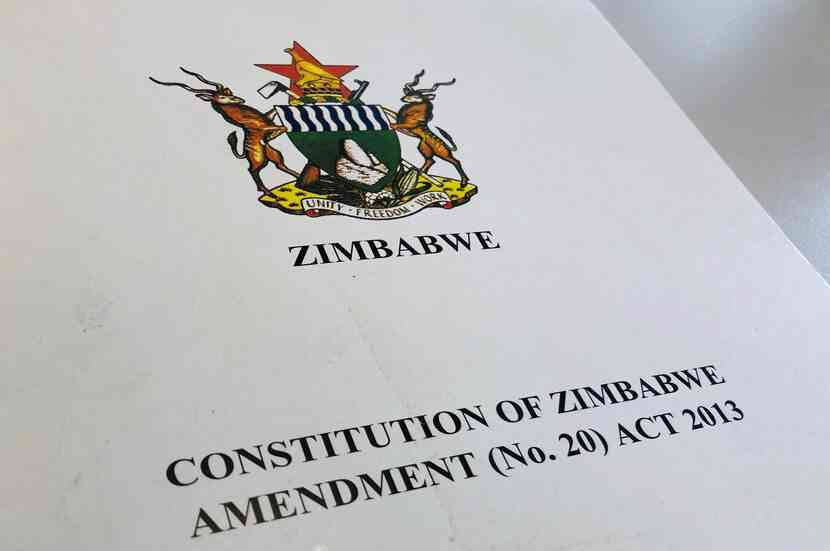
Zimbabwe Independent editor Faith Zaba (wearing spectacles) enters a decisive phase in her high-profile case when her trial opens in Harare this morning, following accusations that she “undermined the authority of the President”.
The Prosecutor-General’s office set the process in motion on Wednesday after issuing a certificate authorising prosecution.
Zaba’s ordeal stems from a satirical piece published on June 27 in the Independent’s long-running Muckraker column, famed for lampooning Zimbabwe’s political establishment.
Authorities invoked legislation to charge her under laws criminalising “undermining the authority or insulting the President”.
Last night, Chris Mhike, the lawyer representing Zaba and Alpha Media Holdings (AMH) — publishers of the Independent — confirmed the trial was due to begin this morning, though he indicated procedural hurdles might delay proceedings.
“The case of Faith Zaba and AMH in the Magistrates Court is, indeed, scheduled for this Friday,” Mhike said.
“Whether the trial will, in fact, take-off or not is, at this stage, indeterminable for a variety of factors. The most significant hurdle is that some of the State papers handed over to defence counsel are defective in their lack of certain essential information. Additionally, Faith is also now set to appear in the High Court on the same day, for an appeal regarding her intention to travel out of the country for a few days, on business.”
Mhike said the State had lined-up six witnesses to testify against Zaba and AMH, and the trial was expected to run for about two weeks “if, or when, that trial does take off”.
- Zimind editor scoops global award
- In honour of Abigail Gamanya
- Minister calls for new media investors
- Feature: Digital gender gap fuels cyber abuse
Keep Reading
This week, Harare magistrate Tapiwa Kuhudzai dismissed Zaba’s application for alteration of bail conditions, which sought the temporary release of her passport to allow her travel to Singapore for a journalism summit.
Zaba has been invited to attend the Women in News (WIN) Guild Gathering and the Asia Media Leaders’ Summit in Singapore after being selected among 19 senior women editors from Africa, the Arab region and Southeast Asia to represent Zimbabwe.
The WIN Guild, a project of the World Association of News Publishers (WAN-IFRA), brings together top female editors and publishers to advance women’s leadership and advocate for gender equity in the media.
However, in his ruling, magistrate Kuhudzai said releasing the passport would not be in the interest of justice, citing fears that Zaba might abscond.
He said the State opposed the application on grounds that “the reason why the passport was taken away in the first place was to minimise the likelihood of the applicant absconding, and, as such, the release of the said passport would re-ignite such flight risk”.
The court also ruled that Zaba had not demonstrated that she could not participate in the summit virtually.
It argued Zaba had “not established any cogent reasons for the proposed alteration,” adding releasing her passport “based on their promise to return for trial and security, in the form of a copy of the title deed and the name of the applicant’s legal practitioner, cannot be tenable”.
Zaba’s arrest and detention in July drew global condemnation, with leading media and human rights organisations calling for her release and warning of an escalating assault on press freedom.
Her prosecution follows a familiar pattern in Zimbabwe, where authorities have increasingly resorted to colonial-era laws to criminalise dissent and restrict independent journalism.
Within legal circles, the consensus has been clear: satire is protected under both domestic and international law.
“Journalism is not a crime,” declared Khanyo Farisè, Amnesty International’s senior researcher for East and southern Africa. “This is an assault on the right to freedom of expression and press freedom. Zimbabwean authorities must immediately release Faith Zaba and drop all charges against her.”
A chorus of organisations joined Farisè in condemnation. The World Association of News Publishers (WAN-IFRA), the Centre for Human Rights at the University of Pretoria, the Southern African Editors’ Forum (Saef), and the Zimbabwe National Editors’ Forum (Zinef) all issued statements criticising the state’s actions.
In a blistering statement, Andrew Heslop, WAN-IFRA’s executive director for press freedom, said:
“Instead of arresting journalists and criminalising the profession, Zimbabwean authorities should be doing everything in their power to protect media freedom and the constitutionally-guaranteed rights of the country’s media professionals. A strong, healthy democracy should have the courage to hold a mirror to itself. Zaba should be immediately freed to continue doing exactly that.”
In New York, the Committee to Protect Journalists (CPJ) also demanded Zaba’s freedom.
“This case sends the message that Zimbabwe’s President Emmerson Mnangagwa and his administration are so fragile that they are easily threatened by a critical column,” said Muthoki Mumo, CPJ’s Africa programme coordinator.
The Centre for Human Rights at the University of Pretoria said Zaba’s prosecution marked a disturbing precedent.
“To criminalise satire is to criminalise critical thinking,” the Centre said.
“When States respond to satire with legal punishment, they do not just silence the satirist — they send a message that questioning authority is dangerous.”
Legal experts say the prosecution of satire undermines Zimbabwe’s obligations under the African Charter on Human and Peoples’ Rights and the Declaration of Principles on Freedom of Expression and Access to Information in Africa, both of which the country has ratified.
Principle 23(3) of the Declaration states: “Speech should not be prohibited merely because it offends, disturbs, or lacks civility.”
One analyst remarked: “If satire can now be deemed a criminal offence, what comes next? Cartoons? Editorials? Commuter bus jokes? Whispered dissent in one’s own home?”










